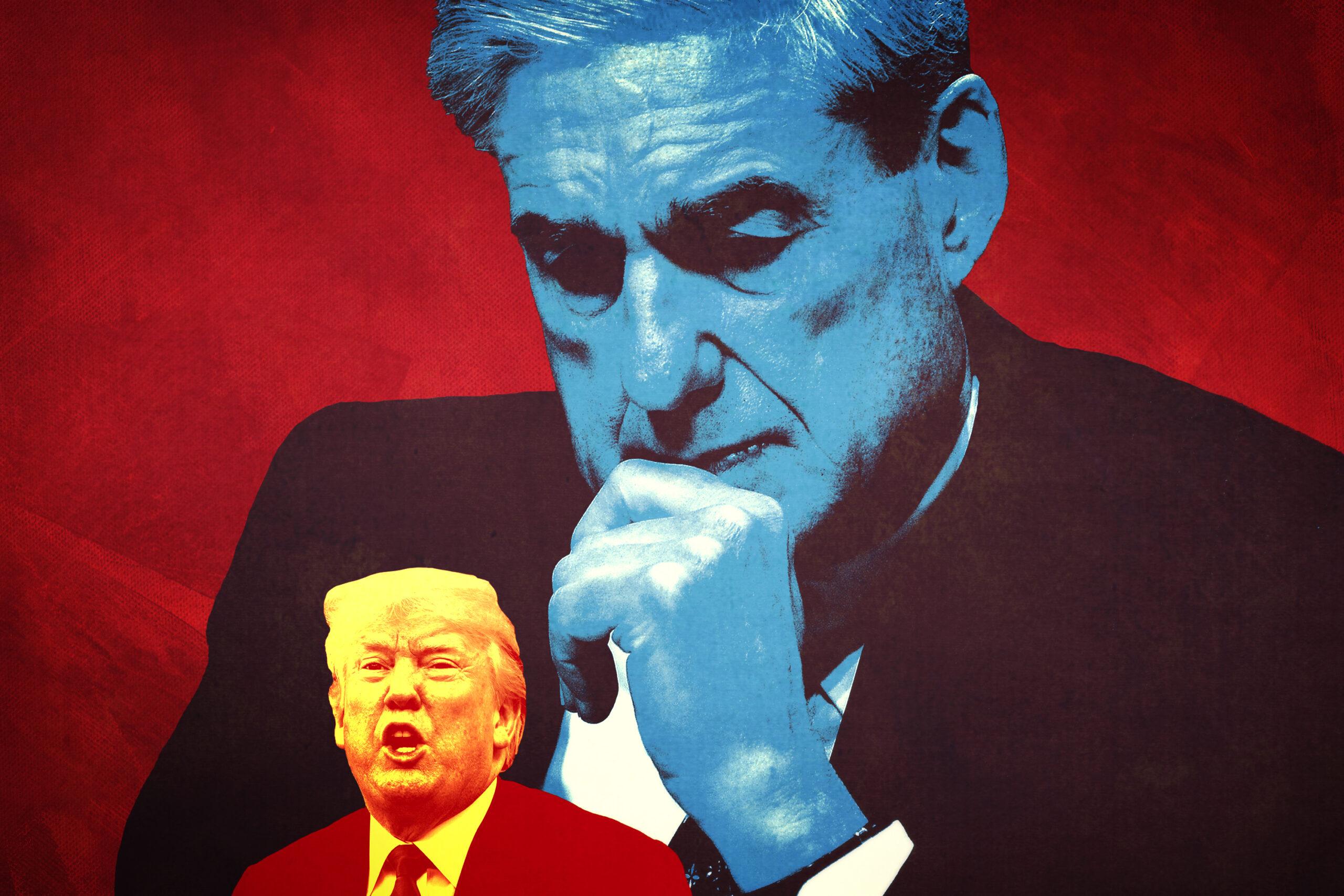
Donald Trump’s lawyers are a fraught and ridiculous bunch. Ty Cobb—Trump’s mustachioed point man—quit earlier this month, having reportedly lost a power struggle with the president’s more recent legal hires, Fox News contributor Jay Sekulow and former New York City mayor Rudy Giuliani. A couple of weeks before Cobb’s “retirement,” Trump had recruited Giuliani to his legal team. Giuliani has sought to negotiate a swift end to the special counsel Robert Mueller’s year-long investigation of the president’s campaign, among other matters related to the 2016 election. Additionally—unfortunately—Giuliani seems to have tasked himself with addressing reporters. On May 2, Giuliani told Sean Hannity, on air, that Trump did indeed reimburse his embattled attorney, Michael Cohen, for a $130,000 payment to Stormy Daniels. It was an astoundingly unflattering admission for Giuliani to offer, unprompted, to a friendly interviewer. In less than a month, Giuliani has done more harm than service to Trump. Giuliani’s disastrous improvisations are the sort of unforced error that has come to define Trump’s defense against Mueller’s investigation. The president and his team of crackpot counselors have turned an otherwise quiet investigation into a prolonged humiliation ritual. Quite possibly, Mueller’s investigation culminates with him outlining too many scandals and infractions to count, much less punish.
Mueller launched his investigation one year ago this week. Given the probe’s excruciatingly slow and suspenseful progression, the year has felt rather like an eternity—a span that has rendered Trump’s critics, and Trump himself, restless in the extreme. Despite the special counsel’s renowned discretion, the Mueller probe has become the loudest, most restless circus in American politics. The stakes are high, and the speculation is wild—and so, too, are Trump’s many, combative statements about Mueller’s probe. Repeatedly, he’s described the investigation as a “witch hunt” (a.k.a. “the $10,000,000 Russian Witch Hunt”), his defensiveness flaring as government officials raid confidants such as Paul Manafort and Michael Cohen. Every other week, the investigation highlights new misdeeds, implicates new figures, inspires new conspiracy theories, and invites breathless constitutional analysis that reads as feverish fan fiction, if only because the Twitter threads and the cable news segments are indeed so wild and naive.
Trump has objected to the investigation’s year-plus duration, but also to Mueller’s broad, all-consuming scope. The probe begins with Trump’s firing of the former FBI director, James Comey, but it’s reportedly expanded to address every concern that any notable detractor has ever expressed about Trump, including those that predate his presidential campaign. To the president’s chagrin, the Mueller probe seems to have become a referendum on Trump’s entire life and career. Trump is a proud mogul. He likely exaggerates his net worth, and he refused to disclose his tax returns during the presidential campaign. He doesn’t seem to fear impeachment so much as he fears transparency and the consequent humiliation.
The Steele dossier prefigured the current obsession with Trump’s finances, his ties to Russia, and even his sex life. The freelance intelligence report—which Mother Jones first reported in October 2016—describes a Russian campaign to influence the 2016 presidential election in favor of Trump. Crucially, Steele’s dossier describes the campaign as a surreal conspiracy of shady players, treacherous interests, and unthinkable means: There are hackers, web troll farms, neo-Soviet intrigue, pornographic contraband, kickbacks, and treason. These are juicy concerns. They’re all begging for narrative resolution, not to mention legal and political redress. So the Mueller investigation now forms a mysterious void at the heart of the U.S. politics; a series finale where the imminent airdate is a surprise. There’s plenty of conventional business that the Trump administration and lawmakers are handling in the meantime—immigration reform, North Korea, international trade, etc.—but the Mueller probe is the prevailing, outstanding matter that overshadows all of Trump’s other priorities. The suspense compounds indefinitely. There’s the investigation itself, which has led to predawn FBI raids and countless news cycle cliffhangers; and then there are Trump’s hot and bothered characterizations of the investigation, which tend to further stoke hopes—and fears—that Mueller and his team are onto something. On cable news, the Mueller investigation plays out as marathon speculation about an unmanageable cast of characters, spanning three continents, all of them linked to the Trump family’s shadiest assets. On Twitter, the probe provokes a patriotic storm of emoji and hashtags. There’s even merch! There’s no more exciting forum for Trump opposition. In the past year, the special counsel has become a rock star.
But the Mueller investigation cannot last forever. Nor can Trump’s critics be sure that Congress and the public will regard Mueller’s findings as cause for any constitutional crisis. The suspense builds, but simultaneously, Trump entrenches himself, his crooked nature now an overly familiar (if nonetheless distressing) fixture in U.S. political culture. The “normalization” that Trump’s critics once furiously warned against has, inarguably, run its course, though figures such as Sally Yates and Rex Tillerson continue to warn against total seduction. Still, the end is nigh. With increasing frequency, the White House has publicly pressured Mueller to bring his investigation to a close; and these calls have only encouraged the more obsessive liberal commentators, such as Rachel Maddow and Eric Garland, to make commentary on Mueller’s purview their own life’s work. Meanwhile, Trump’s more pragmatic critics have dropped their proclamations about impeachment and now obsess about this year’s midterm elections instead. Thus, the year in Mueller ends with creeping resignation. The special counsel’s investigation may end with a bang, a whimper, or—most likely—both. In any case, Mueller’s probe has underscored the incompetence of Trump’s team while revealing a fantastical distress among its critics. Giuliani isn’t doing Trump any favors, but Mueller may ultimately do the president no lasting harm.

